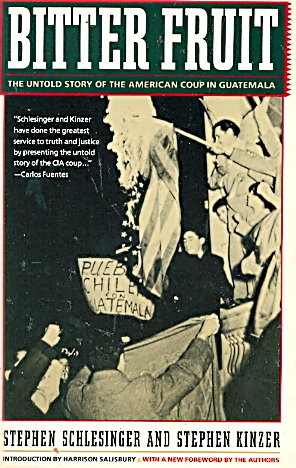Immigrants, Economies, and US Policy

So many of the home countries of our immigrant neighbors have close economic ties to the US, and US policy has sometimes contributed to their poverty. I think it’s important for all of us to understand these connections while we’re helping folks survive under Trump’s ICE craziness.
Think of Honduras, where Kroger now gets their (United Fruit) bananas and to which Emerson has been deported. And there’s Ivory Coast, a former French colony in west Africa that’s the source of most of the cocoa beans that go into the chocolate beans we love - but are often picked by children.
Mali and Guatemala are two of the other home countries for immigrants - but continents apart, and both were home to civilizations before the colonial powers arrived, and now suffering complex problems - poverty that’s been exacerbated by France, Spanish and US involvement, and sending some of their people to the US. Especially blatant was the 1954 US-instigated coup in Guatemala over a land dispute with United Fruit, which led to several decades of dictatorship with killings of ordinary people caught up in the struggles.
Across from the Kroger on Warsaw Ave in Price Hill, there are small businesses owned by immigrants from both these countries.
Few Americans realize that the first Europeans to visit west Africa in the late 1400s found civilizations there that were just as wealthy as their home country (Portugal), and they developed trade relations as equals long before the onset of slavery. Similarly in Central America and Mexico, on the arrival of the Spanish in the early 1500s, there were already well developed Aztec and Mayan civilizations. Among the people of western Guatemala who now live in Cincinnati, many speak a language derived from the Mayan civilization, such as Mam or K’iche.
Especially remarkable for northern Mali is the advanced and literate civilization in Timbuktu, which was a center of learning in the Islamic world of the 14th century. And speaking of wealth, Mansa Musa was the leader of a kingdom just south of Timbuktu who made a pilgrimage across the Sahara to Mecca in 1324, carrying and giving away so much gold in Egypt that he totally disrupted the economy of the region for a few years. Later the source of that gold, from mines to the south of present-day Mali, would motivate the British colonialists to call present-day Ghana the “Gold Coast.”
Most of the west African news we get today is focused on the military response to Al Qaeda in the region where the Sahara meets the temperate zone (Sahel), but fails to point out the underlying conflicts between the herding peoples and the pastoralist farmers, that are being taken advantage of by the right-wing Saudi funded imams.
Today we need to understand these histories and realize that there’s nothing ‘natural’ about the present-day poverty of those countries, but that it’s a consequence of colonial interactions, and that we have the power to assist those peoples in turning things around.
We may be putting on an educational event somewhere in greater Cincinnati to discuss these histories, and what to do to protect immigrants. Feedback welcome to Thurman at tbwenzl45@gmail.com